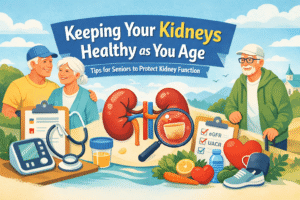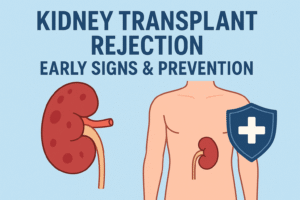Kids are resilient, but sometimes their bodies have quirks adults never face. Their kidneys, for instance, are tiny powerhouses that are still growing and still learning how to function properly. You can’t treat them like adult kidneys; it just wouldn’t work. That’s where Pediatric Nephrology comes in. At SouthernOKC, children in Ardmore, OK, and Gainesville, TX, receive care that’s tailored, thoughtful, and early enough to make a real difference. Honestly, catching problems early? It can be life-changing.
What Makes Pediatric Nephrology Different from Adult Nephrology?
You might ask, Why not just take my child to a regular nephrologist? Kids aren’t small adults. Their kidneys develop differently. They react differently. Symptoms may be subtle, even misleading. Pediatric nephrology notices these nuances. They tweak treatments, follow growth patterns closely, and sometimes rely on intuition that only years of experience provide. It’s meticulous, and occasionally frustrating, but worth it.
Which Kidney Conditions Are Most Common in Children?
Children can experience a lot: hereditary kidney diseases, urinary tract infection (UTIs), nephrotic syndrome, or kidney deformities. It may not sound very comforting because it is so. But the good news? In Pediatric Nephrology, early diagnosis and management do matter. Kids grow better, parents worry less, and long-term complications can be minimized. It’s a relief you notice immediately.
How Do Pediatric Nephrologists Diagnose Kidney Problems in Children?
Diagnosis goes beyond blood tests and ultrasounds (although they play a role in it). Other times, it is how small things have changed, how one feels tired more than usual, a little swelling, and changes in appetite. In some cases, a biopsy is required. This requires pediatric nephrologists to combine science, experience, and even a certain degree of gut instinct. The aim is to do it early all the time- because preventing issues before they get out of control saves children years of problems.
Why Is Early Intervention Crucial for Children with Kidney Issues?
Timing matters. Even a minor delay can have an impact on growth, kidney functioning, and quality of life. Early is a good thing, and children need not stop being children. Rushing about, learning, laughing. Pediatric nephrology transforms minor, overlooked symptoms into practical interventions. Parents are usually empowered as they are aware that something is being done before it is too late.
What Treatments and Therapies Are Used in Pediatric Nephrology?
There is no such thing as a one-size-fits-all treatment. Drugs, dialysis (even in children), transplants of the kidney, supportive therapy, everything is possible. Nutrition also comes in the mix, since a kidney-friendly diet may also be quite complicated in the case when your child hates vegetables. The families are involved throughout. Pediatric nephrology is a task that is both technical and caring, so that children are not only treated, but also taken care of.
How Does Nutrition Play a Role in Pediatric Kidney Care?
Diet is delicate. Too much protein? Not good. Too little? Also problematic. Electrolytes, fluids, and growth needs all require careful balancing. Pediatric nephrology specialists collaborate with dietitians to create plans that kids can follow. Yes, picky eaters are a challenge, but proper nutrition supports kidney function and healthy growth simultaneously.
What Support Systems Help Families Manage Pediatric Kidney Diseases?
Kidney care isn’t just medical charts and tests. Families need support, counseling, education, and ongoing guidance. SouthernOKC offers multidisciplinary teams to help parents navigate appointments, treatment plans, and emotional stress. Families aren’t left alone in the process. Support is constant, sometimes subtle, sometimes life-changing.
How Can Specialized Nephrology Improve the Future Health of Children?
Thinking ahead matters. Children who have early and specialized treatment tend to have better kidney function, develop normally, and comfortably graduate to adult care. All this prevention, monitoring, and family involvement leads to the provision of a child with the healthiest possible future. Pediatric Nephrology is not just a cure; it is a health education on lifelong health.




